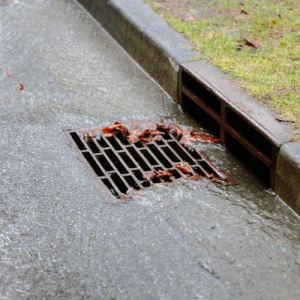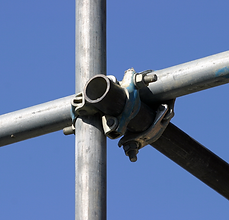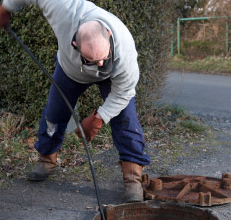
When dealing with blockages in your home, you may be wondering how clogged drains can happen in the first place. Whether it is from a sink, bathtub, or shower drain, blocked drains can be an annoying and even smelly problem. In some cases, they can lead to serious issues such as flooding and water damage if not taken care of quickly. Luckily, there are some steps you can take to resolving the issue and prevent future clogs.click here

Types of Blockages
The most common type of blockage found in drains is from built-up debris such as food particles, grease, hair, and soap scum. These materials build up over time and create a barrier in the pipes, leading to a clog. Another common cause of blockages is tree roots. Tree roots will often travel through sewer lines and find their way into small openings in the pipes, further exacerbating the clog.
Signs of a Clogged Drain
If there is a blockage in your drain, you might start to notice certain signs. The most obvious sign is a slow draining sink or bathtub. This means that water is not flowing through the pipe as it should, meaning a potential blockage. You might also start to smell bad odors emanating from the drainage system, which could be caused by decaying food particles or other materials stuck in the pipe.
Another sign that you might have a clogged drain is if you see standing water around the sink or tub. This usually happens when the water has nowhere to go due to a blockage and begins to back up in the drain. Standing water can become a breeding ground for bacteria which can be dangerous if exposed to your family members.
Clearing the Blocked Drain
Once you’ve identified a blocked drain in your home, the best plan of action is to get it fixed as soon as possible. One of the easiest ways to do this is to use a plunger. Plungers create a suction action which can break up any debris in the drain and restore the flow of water. If this doesn’t work, try using a snake or auger (a long metal cable) to cut away at any tough clogs.
For more severe blockages, you can also use chemical solutions such as drain cleaners or vinegar and baking soda. These substances can help break up clogs and allow water to flow freely through the pipes. However, it’s important to use caution when dealing with chemicals as they can be harmful to your skin and eyes.
Tips For Preventing Blocked Drains
The best way to prevent blocked drains is to practice good habits. Start by avoiding pouring cooking oils and fats down the sink as these substances will solidify once they cool off and block the pipes. Additionally, be sure to inspect all pipes regularly for any debris or clogs. If you notice anything suspicious, call a professional plumber to clear out the issue.
Finally, refrain from using drain cleaners on a regular basis as they can corrode pipes over time. Instead, opt for natural solutions like hot water and baking soda to unclog stubborn blockages.
If you have noticed any signs of blocked drains in your home, click here to get help from a professional plumber who can safely and efficiently resolve your issue.



